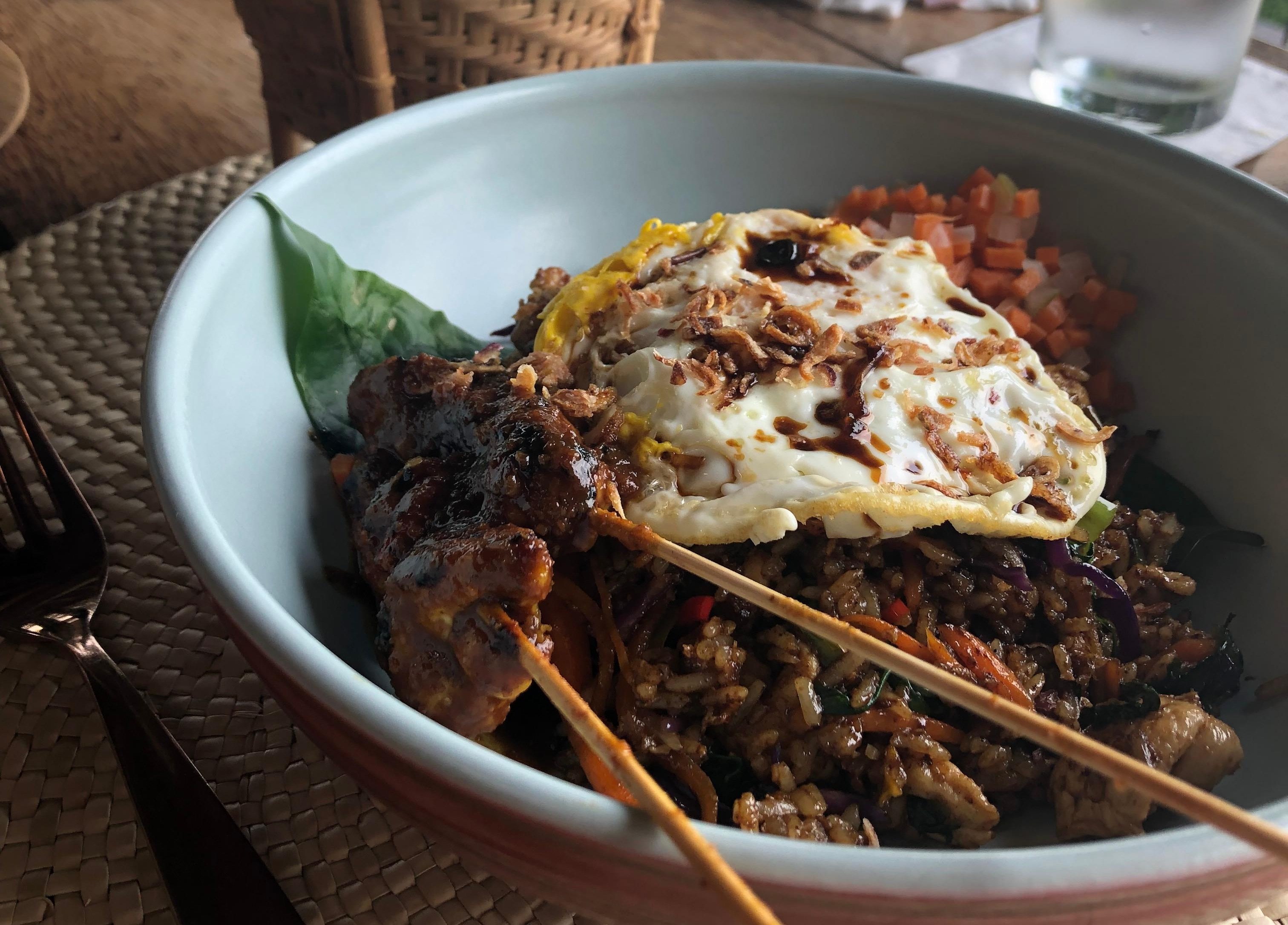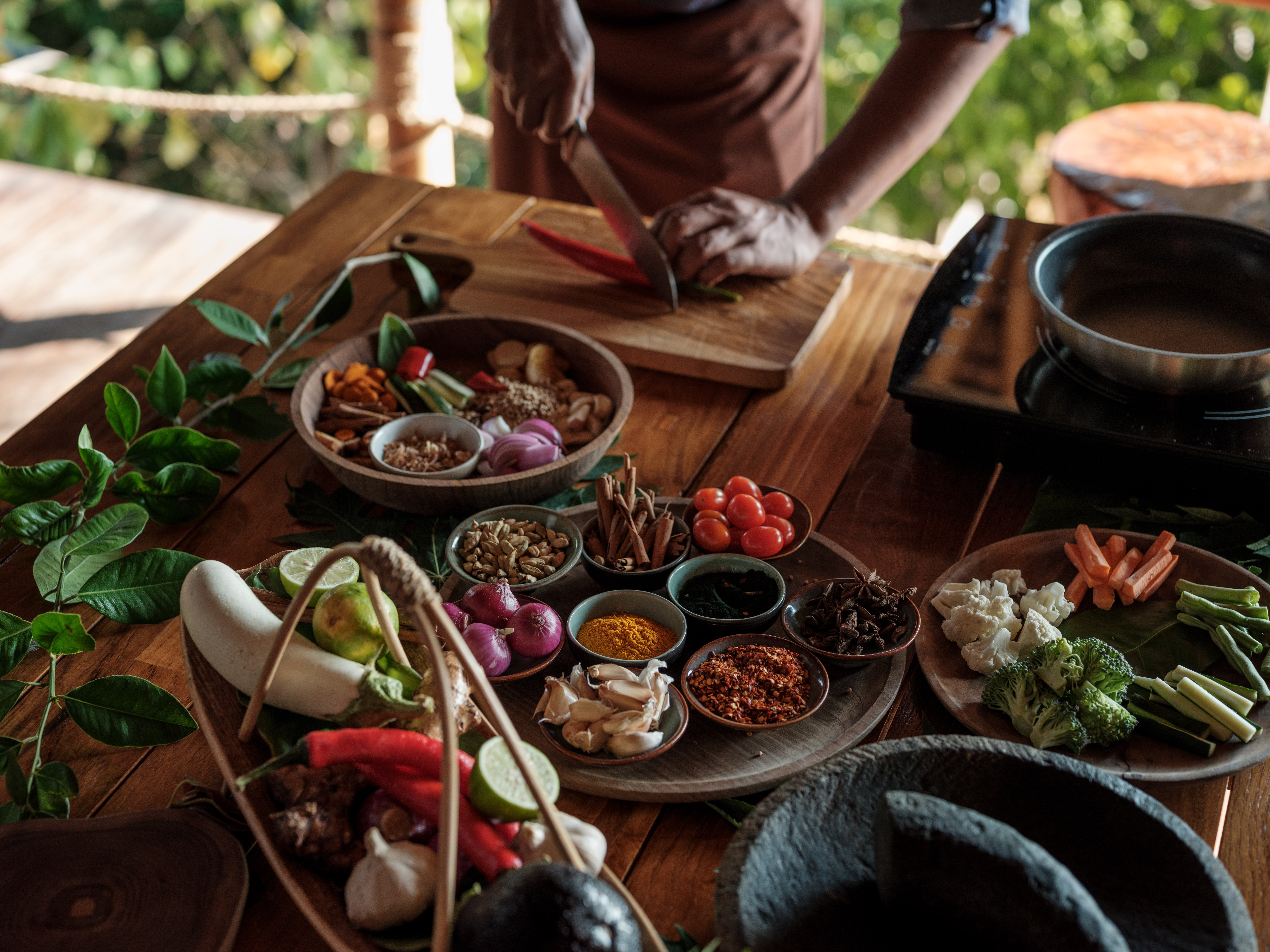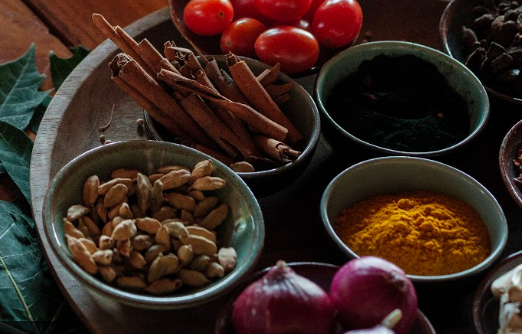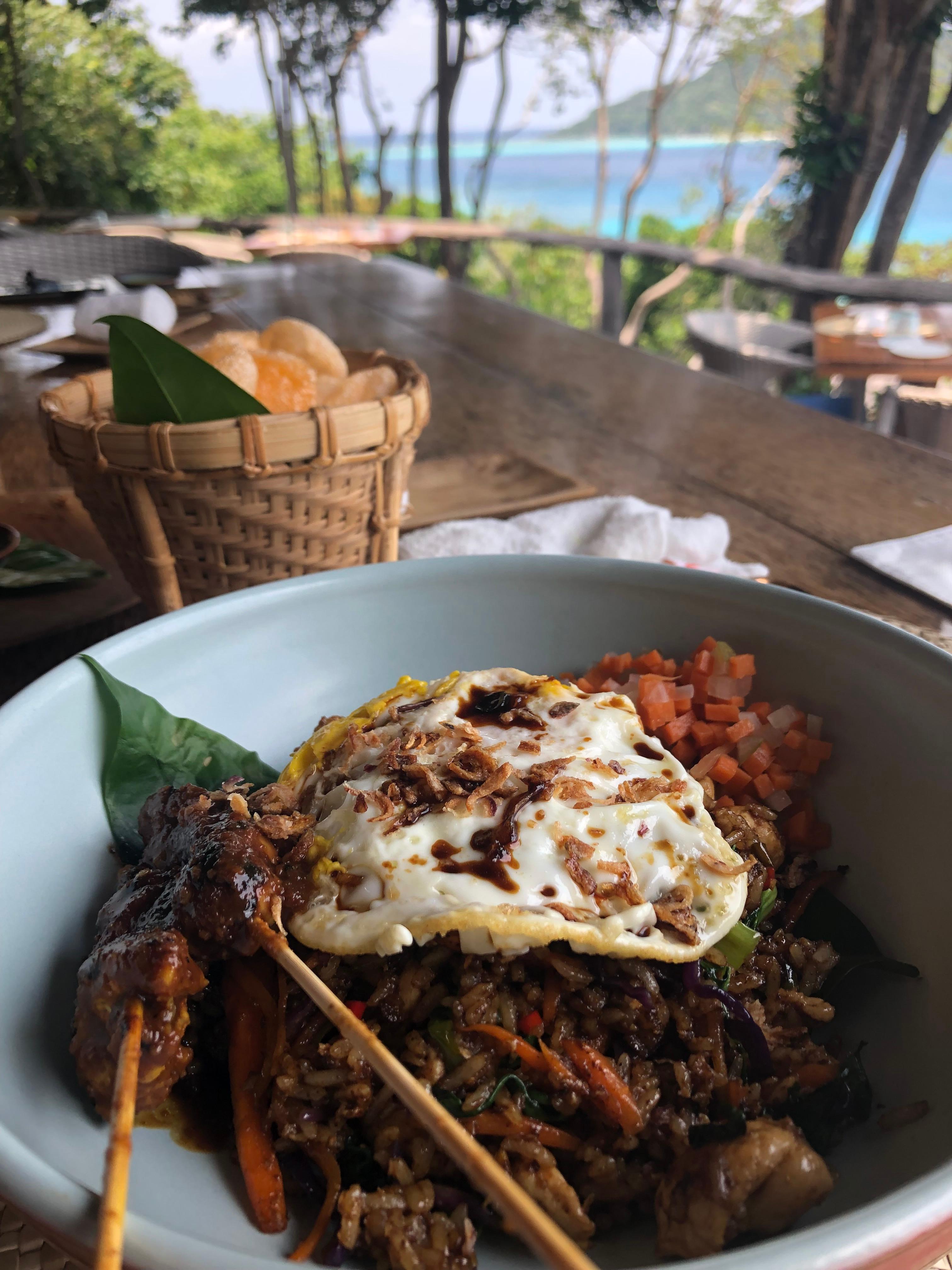An all-inclusive experience, redefined…At Bawah Reserve in Indonesia’s pristine Anambas...
Begin your day at Bawah Reserve with your choice from our Juice Butler service: fresh...
If you’ve noticed the beautifully patterned fabrics in your villa, you’ve already...
Ready to make a splash?For guests who are both swimming-fit and up for a challenge,...
Welcome to the thermal contrast therapy facility at Aura Sanctuary at Bawah Reserve,...
Planning your dream private island holiday in Indonesia? Here at Bawah Reserve, we...
3 ways to repost or use our Instagram Reels
We love that you want to share a little...
2024 wellness trends were exciting for sure, but it keeps getting better! The top...
A new subtle yet powerful trend - that of being “demure” and “mindful” - has been...
When we think of bees, honeybees often come to mind. However, at Bawah Reserve, a...
In the heart of Southeast Asia lies a hidden gem that promises a retreat into nature,...
It’s safe to say that if you ask someone to name a tropical island destination, they will...
As we step into 2024, the world of well-being is teeming with transformative trends that...
2 years ago for Earth Day 2022, we created 10 sincere pledges for investing in the planet...
Starting to plan your dream wedding? Some couples have a clear idea of their perfect...
We are often asked about the best time of year to schedule a trip to Bawah Reserve.Which...
Our faraway paradise is well worth the journey and there are many ways to get to Bawah,...

Literally translated from Bahasa as fried rice – rice is “nasi” and “goreng” means fried – the name pretty much sums up exactly what nasi goreng is!
The national dish of Indonesia is found throughout Southeast Asia and is very popular in both Singapore and Malaysia. Interestingly, it’s also well known in the Netherlands, having been brought back home by Dutch colonisers from the early 17th century onwards.

Nasi goreng originates from Indonesia, dating at least as far back as the 10th century when substantial numbers of Chinese immigrants began migrating there. In fact, the Chinese influence on local cuisine started even earlier, with traders who started spending time at various island ports from around 2000 BC! Wok-frying is just one of those culinary influences – others include spring rolls, noodles, and meatballs.

For breakfast, these immigrants would often fry up any rice leftover from the previous evening meal. Actually, cold leftover rice works better than freshly cooked rice because it’s firmer and less likely to turn mushy in the wok. Over the centuries, with the addition of Indonesian flavours like sambal belacan (chili and shrimp paste), the dish gradually evolved into the nasi goreng we know today.
Like many Indonesian dishes, nasi goreng is highly customisable and you can adjust the ingredients according to your taste – fiery hot if that’s what you like, or on the milder end of the chili scale. As a matter of fact, the basic recipe contains neither meat or fish – except for the shrimp in the belacan paste served with it – and is traditionally topped with a fried egg and often with satay on the side.
Variations include nasi goreng kambing (mutton) and nasi goreng ayam (chicken). Nasi goreng
gila, which translates as “crazy fried rice”, is just a mix of any of the above!
Though it originated as a morning meal, nowadays nasi goreng is enjoyed at any time of the day
– for breakfast, lunch, or dinner!
The following recipe makes 4 portions.

Ingredients for sambal belacan paste
1 tablespoon vegetable oil
40 grams garlic
200 grams large red chilies
80 grams red shallots
20 grams shrimp paste
4 candlenuts
Ingredients for nasi goreng
1 tablespoon vegetable oil
40 grams garlic
400 grams cooked white or brown rice
100 grams carrots
100 grams cabbage
100 grams bok choy or other leafy vegetables
2 tablespoons oyster sauce
3 tablespoons sweet soy sauce
1 tablespoon light soy sauce
2 eggs, beaten
4 whole eggs
30 grams fried shallots
Prep
1. Cook the rice according to packet instructions, preferably the day before.
2. Finely chop the garlic, chili, and candlenuts.
3. Finely shred the cabbage and julienne the carrots.
Sambal belacan
4. Heat 1 tablespoon vegetable oil in a pan.
5. Sauté the garlic, shallots, chili, candlenuts, and shrimp paste until soft and fragrant.
6. Transfer to a mortar (cobek) and grind into a paste. Leave to cool.
Nasi goreng
7. Heat the rest of the oil in a wok or pan and sauté the remaining chopped garlic until fragrant.
8. Mix in the beaten egg and vegetables (carrot, cabbage, and leafy vegetable).
9. When the egg has firmed up, add the cooked rice and toss it through.
10. Stir in the oyster sauce, sweet soy sauce, and light soy sauce; salt and pepper to taste.
11. Fry the 4 eggs in a frying pan.
12. Divide the rice mixture between 4 plates, garnish with fried shallots, top each helping with a
fried egg and serve with the sambal belacan, some satay sticks, and – if you like – a garnish of sliced cucumber and tomato.
If you enjoy cooking Indonesian food, why not try some other recipes fresh from the Bawah Reserve kitchen? HERE
An all-inclusive experience, redefined…At Bawah Reserve in Indonesia’s pristine Anambas...
Begin your day at Bawah Reserve with your choice from our Juice Butler service: fresh...
If you’ve noticed the beautifully patterned fabrics in your villa, you’ve already...
Ready to make a splash?For guests who are both swimming-fit and up for a challenge,...
Welcome to the thermal contrast therapy facility at Aura Sanctuary at Bawah Reserve,...
Planning your dream private island holiday in Indonesia? Here at Bawah Reserve, we...
3 ways to repost or use our Instagram Reels
We love that you want to share a little...
2024 wellness trends were exciting for sure, but it keeps getting better! The top...
A new subtle yet powerful trend - that of being “demure” and “mindful” - has been...
When we think of bees, honeybees often come to mind. However, at Bawah Reserve, a...
In the heart of Southeast Asia lies a hidden gem that promises a retreat into nature,...
It’s safe to say that if you ask someone to name a tropical island destination, they will...
As we step into 2024, the world of well-being is teeming with transformative trends that...
2 years ago for Earth Day 2022, we created 10 sincere pledges for investing in the planet...
Starting to plan your dream wedding? Some couples have a clear idea of their perfect...
We are often asked about the best time of year to schedule a trip to Bawah Reserve.Which...
Our faraway paradise is well worth the journey and there are many ways to get to Bawah,...
© Bawah Reserve 2024. Anambas. Riau Islands. Indonesia
leave a comment